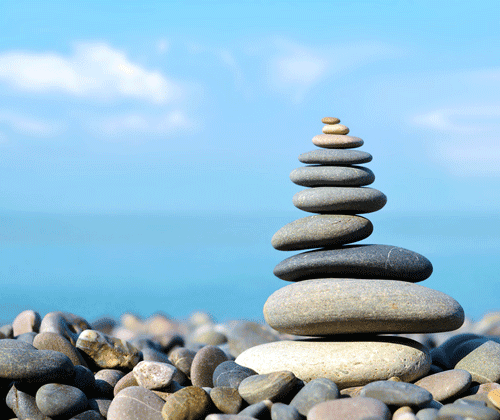In addiction recovery, if your life is filled with non-pleasurable activities, you are more likely to relapse. The relapse will provide an intense, but only temporary, satisfaction.
Perhaps the greatest risk for imbalance comes when we are too focused on what we “should” do and not enough on what we want to do. Of course, we need to do what we should do, but with balance!
 Lifestyle balance can be considered from a number of perspectives. Below is a list (taken from Dr. Horvath’s book, Sex, Drugs, Gambling & Chocolate, page 191) that you might use to consider how balanced you are:
Lifestyle balance can be considered from a number of perspectives. Below is a list (taken from Dr. Horvath’s book, Sex, Drugs, Gambling & Chocolate, page 191) that you might use to consider how balanced you are:
- Work and relaxation
- Activity and contemplation (self-assessment)
- Duties and fun
- Long-term projects and momentary pleasure
- Alone time and social time
- Routine household chores and new projects
- “Shoulds” and “wants”
- Making money and spending money
- Spiritual time and secular time
- Giving and receiving
- Being physically distant and being physically close
- Exercise and rest
- Personal maintenance and productivity
- Going fast and going slow
- Learning from others and learning independently
The idea of balance as an ideal is at least as old as Aristotle. In his Nicomachean Ethics (written in the 4th century BCE), which might be described as the first self-help book, he describes virtuous activity as a mean between two extremes. For instance, courage is a mean between cowardice and foolhardiness. For each item on the list above, we need to consider to what extent we have achieved a balance between the two poles listed.
Having achieved some basic balance in life, the next step can be considering more deeply what our enduring satisfactions truly are. It is this consideration that connects the fourth point of the 4-Point Program back to the first point (to “enhance and maintain motivation to abstain”). Motivation to abstain is ultimately based on a sense that there is a better life to live than an addicted one. The example of a terminal cancer patient needing morphine for pain control shows that what might be considered addictive behavior is not necessarily bad. But it you believe that there can be more to life than what addiction provides, the challenge is to achieve that.
What is most important in life has been a focus for everyone at times, but perhaps not enough of the time. Freud suggested that a combination of love (relationships) and work (productive activity) is most important. If only this simple suggestion (“to love and work”), or other suggestions, were enough to provide clear guidance for all of us!
I propose some basic questions. What are my most important relationships? How could I pay more attention to these relationships? What activities am I good at? Given what I am good at, or could learn, what do I most like doing? What satisfactions did I have before addiction? At what moments in life did I feel a clear sense of direction (and what was that direction)? How much time do I speak with others, and think about, my direction in life?
For most of us, being out of balance is about focusing too much on short-term (momentary) concerns, and not enough on long-term (enduring) concerns. Although there are some individuals who put too much money into retirement, the typical problem is not putting enough. I hope the above ideas help you strike a better balance.
This article is adapted from “Lifestyle Balance,” originally published in the SMART Recovery newsletter (smartrecovery.org), July, 2001. Liked this lifestyle balance article? You might also be interested in Balance Points vs. Expanding Polarities.
